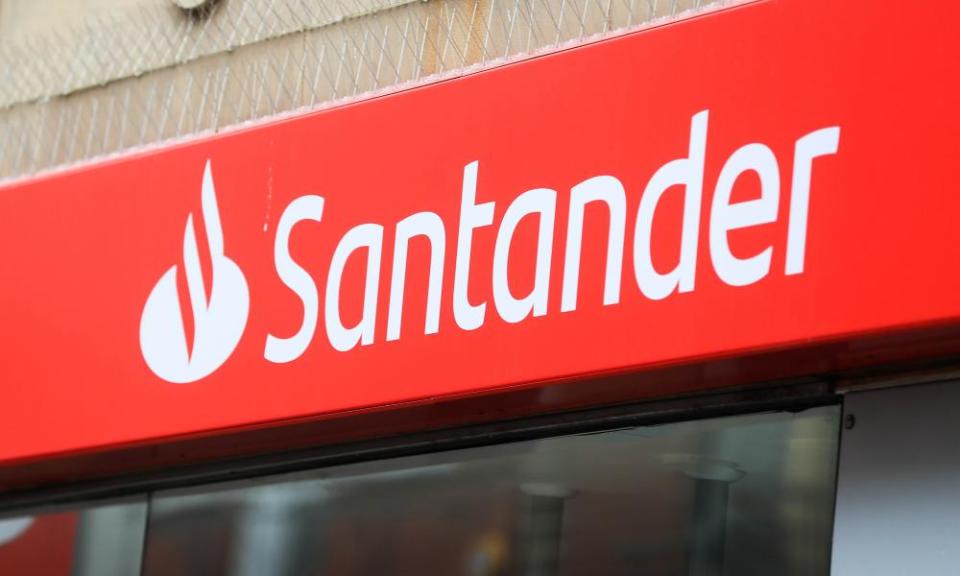Santander wanted my bedbound father to visit his branch on a trolley

My father had a stroke earlier this year and is bedbound and needs 24-hour care. Last month, two online payments from his Santander account were blocked. He was told to call the helpline and asked various security questions.
When he was unable to name a recent transaction, his account was locked and he was told he would have to go into the branch for his identity to be verified. He explained his situation but the agent was uninterested.
Staff at the branch told me their hands were tied and referred me back to the helpline, which, again, confirmed a branch visit was the only solution. It refused our suggestions that his solicitor verify him, that a video call be set up, or that bank staff visit his home.
I will therefore have to book a private ambulance and a carer, which will cost £395. A nurse assessment concluded a wheelchair would be too risky, so we will have to wheel him on a hospital trolley through the pedestrian precinct to the bank.
He is unable to access money to pay his care fees, or even buy his dog’s food.
DK, Chichester, West Sussex
I couldn’t quite believe what I was reading at first. I asked you to send me the quote for the ambulance hire to be sure I’d got the facts straight. I had. Santander expected your father to travel five miles to his nearest branch and present himself on a stretcher so they could check he was who he said he was.
To be clear, the bank had frozen his account legitimately. He was attempting two very large payments to new recipients and banks are expected to block and query transactions that seem out of character to protect customers from scams. Banks are held accountable if they fail to prevent fraud, and branch visits may be required to satisfy staff that a payment is genuine.
However, branch closures make them ever more inaccessible, and some customers are physically unable to make the journey. Banks therefore have to balance customer protection with customer need, and vulnerable customers should receive customised support.
My first question to you was whether you held lasting power of attorney (LPA) for your father and so could manage the account on his behalf. You do, and you say you had repeatedly mentioned this to bank staff, but were unaware that the LPA documents have to be registered individually with individual organisations. This process was never mentioned in your conversations with five different Santander agents.
The bank admits your father should have been offered another phone call to verify his identity and that, in some cases, staff can make visits to the customer’s home. It told me that a specialist support team and internal hub were available to employees to help with more complex cases. The agents who dealt with you don’t seem to have availed themselves of either.
The impasse was resolved when you registered your LPA, although it took another two weeks before online banking was fully restored.
Santander says: “A temporary block was placed on this account, as concerns were logged about unusual account activity, and in subsequent phone calls the customer’s identity couldn’t be fully confirmed. There were delays in getting this removed and alternative options should have been offered.
“We recognise we did not get the right balance between fraud prevention and tailoring a solution to the customer’s specific circumstances quickly enough, and we sincerely apologise. We have a range of support options in place for customers which we can tailor to their specific needs, and we will be reminding our teams about these.”
Your father has been offered £750 for the “inconvenience”.
The Financial Conduct Authority, the banking regulator, told me that under its new consumer duty rules, firms must respond flexibly to the needs of vulnerable customers without undermining safeguards.
According to the campaign group Fairer Finance, banks often struggle with this balancing act, mindful of the large payouts they face if they allow an account to be defrauded.
“Large organisations often rely on rigid systems and a ‘computer says no’ approach,” says its managing director, James Daley.
Customers with additional needs, or their representatives, should ensure that their bank register them as vulnerable to help ensure they are treated fairly.
Snapshot of GoPro’s stellar service…
I own a five-year-old GoPro camera, bought from a colleague who received it as a gift and never had proof of purchase. The bracket holding it to my bike’s handlebar broke, and I couldn’t find a replacement on the GoPro website, so asked for a callback. Within 30 minutes, a very helpful person asked me to email a photo of the broken part and agreed to send me, completely free, two replacements. These arrived a few days later. Stellar service.
KM, Tadley, Hampshire
Email your.problems@observer.co.uk. Include an address and phone number. Submission and publication are subject to our terms and conditions

 Yahoo Finance
Yahoo Finance 